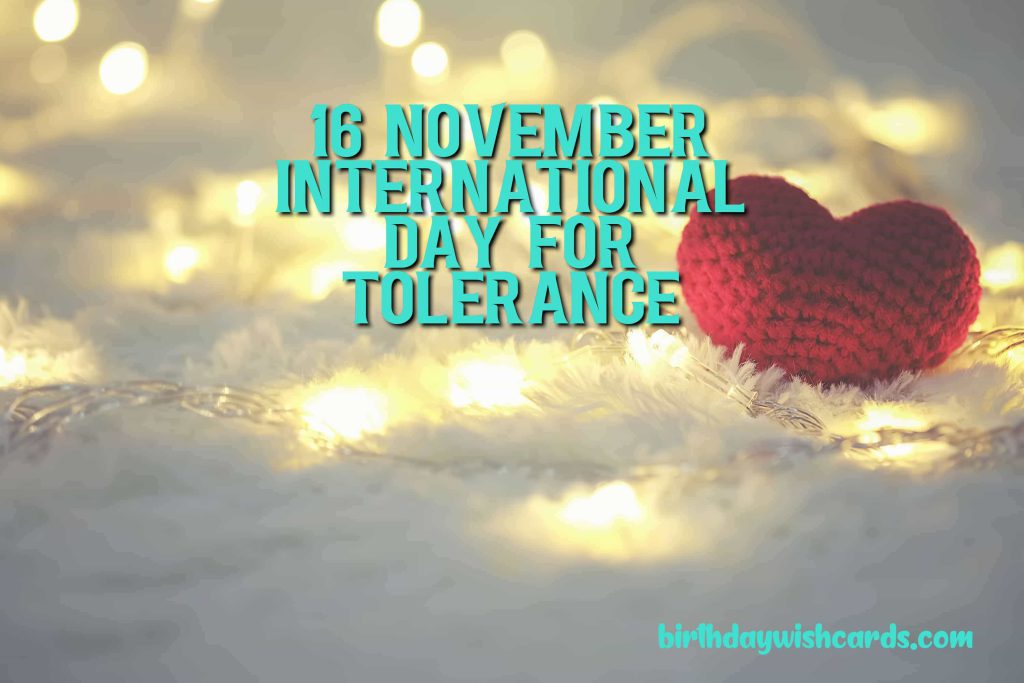
16 November: International Day of Tolerance
Declaration of Principles on Tolerance
On 16 November 1995, marking its 50th anniversary, UNESCO’s Member States adopted the Declaration of Principles on Tolerance. This landmark declaration affirms tolerance as the recognition and appreciation of the rich diversity of cultures, expressions, and ways of being human worldwide. It underscores that tolerance is inseparable from respect for universal human rights and fundamental freedoms.
In our increasingly interconnected world, tolerance forms the bedrock of peaceful coexistence among diverse peoples. The declaration emphasizes that tolerance is not only a moral duty but also a political and legal imperative for individuals, organizations, and states. To this end, states are encouraged to enact legislation that promotes equality of treatment and opportunity for all groups and individuals in society.
Education for Tolerance
Education is essential in nurturing tolerance, as it counters influences that sow fear and exclusion. Educational systems play a vital role in fostering impartial judgment, critical thinking, and ethical reasoning among young people. The world’s vast diversity of religions, languages, cultures, and ethnicities should be seen not as grounds for conflict, but as invaluable assets that enrich humanity.
The United Nations is committed to advancing tolerance by promoting mutual understanding among cultures and peoples. This commitment is deeply rooted in the United Nations Charter and the Universal Declaration of Human Rights. In an era marked by rising violent extremism and ongoing conflicts, promoting tolerance is more crucial than ever to safeguard human dignity and life.
United Nations General Assembly and the International Day of Tolerance
In 1996, the United Nations General Assembly adopted resolution 51/95, inviting all Member States to observe the International Day for Tolerance each year on 16 November. This initiative followed the United Nations Year for Tolerance in 1995, proclaimed by the General Assembly in 1993 at UNESCO’s request. The Year for Tolerance was guided by the principles outlined in the Declaration of Principles on Tolerance and its accompanying Plan of Action.
To commemorate both the United Nations Year for Tolerance and the 125th anniversary of Mahatma Gandhi’s birth, UNESCO established the UNESCO-Madanjeet Singh Prize for the Promotion of Tolerance and Non-Violence in 1995. This distinguished prize recognizes significant achievements in scientific, artistic, cultural, or communication fields that foster a spirit of tolerance and non-violence worldwide.
The UNESCO-Madanjeet Singh Prize: Promoting Tolerance and Non-Violence
Awarded biennially on 16 November, the UNESCO-Madanjeet Singh Prize honors individuals, institutions, or organizations that have made outstanding and effective contributions to advancing tolerance and non-violence. The prize serves as a powerful reminder of the importance of peaceful coexistence and mutual respect in a diverse world.
Why Celebrating the International Day of Tolerance Matters
Celebrating the International Day of Tolerance raises awareness of the dangers of intolerance and discrimination. It encourages societies to embrace diversity and foster environments where all individuals feel respected and valued, regardless of their background. By promoting tolerance, communities can reduce conflict, strengthen social cohesion, and create opportunities for collaboration and understanding.
Efforts to promote tolerance include educational programs, cultural exchanges, awareness campaigns, and policy reforms that protect human rights and advance equality. Governments, civil society, educators, and individuals all have a vital role in cultivating a culture of tolerance that celebrates differences rather than fearing them.
Images Highlighting the Spirit of Tolerance
The following images capture moments and symbols that embody the essence of tolerance and peaceful coexistence across cultures and societies.

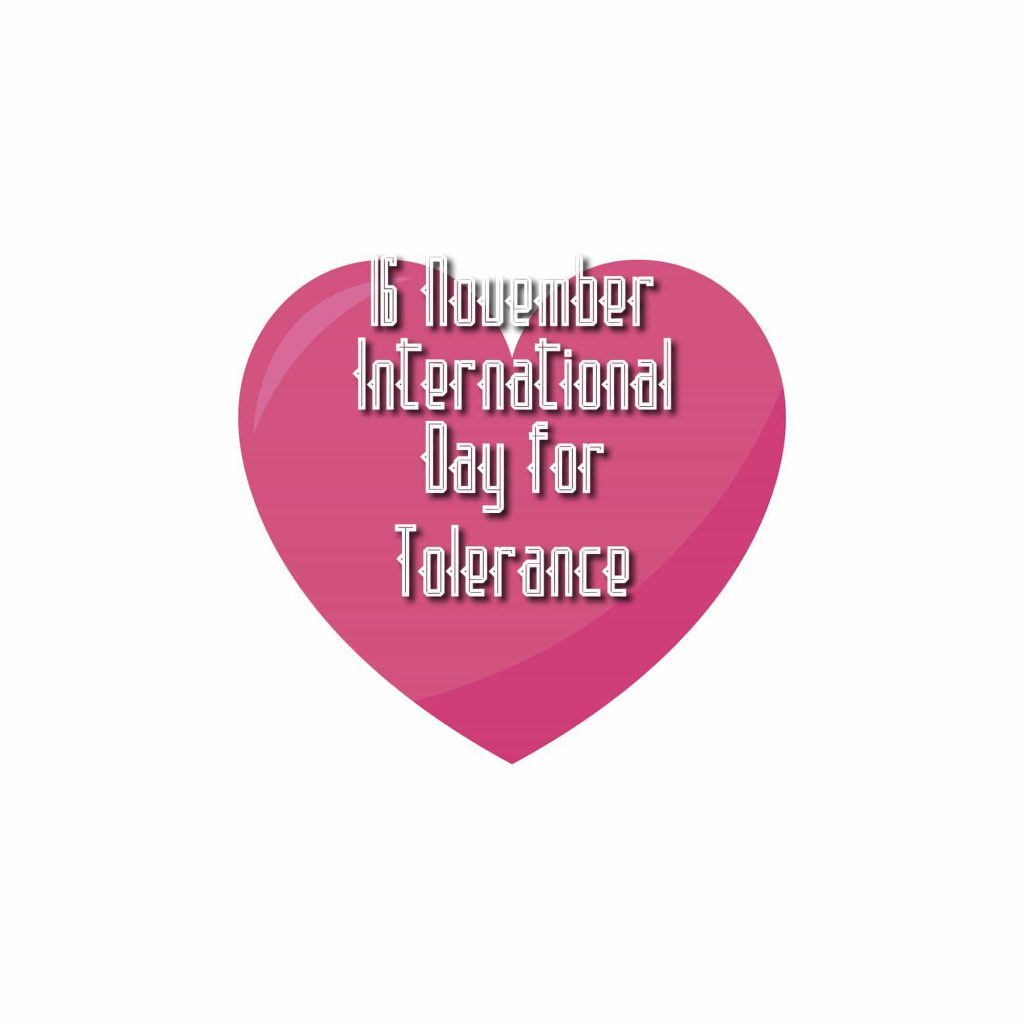
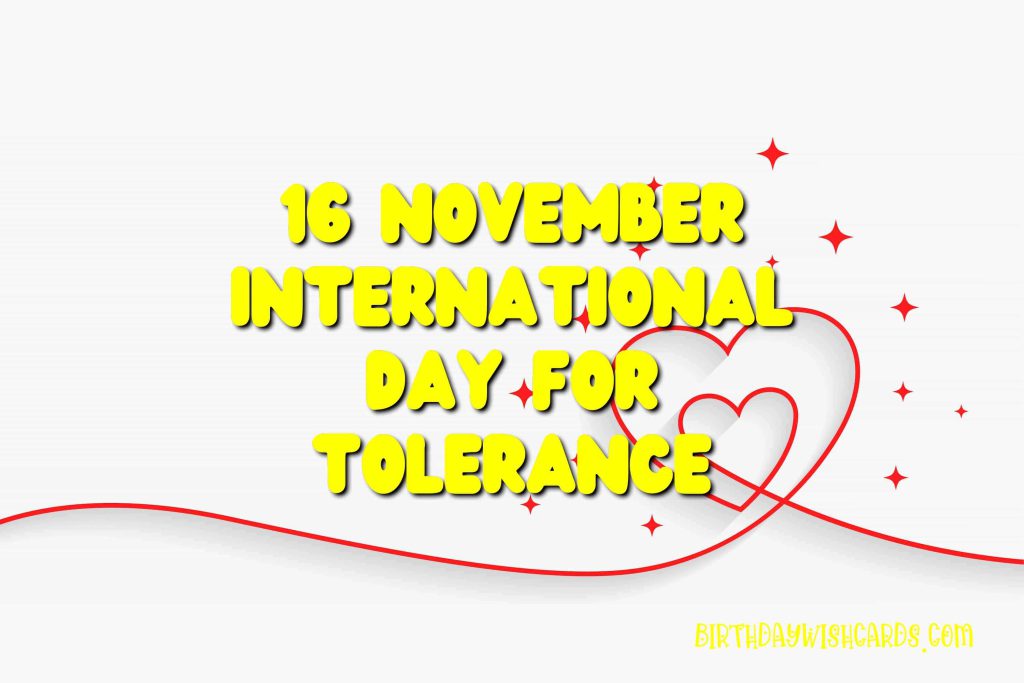
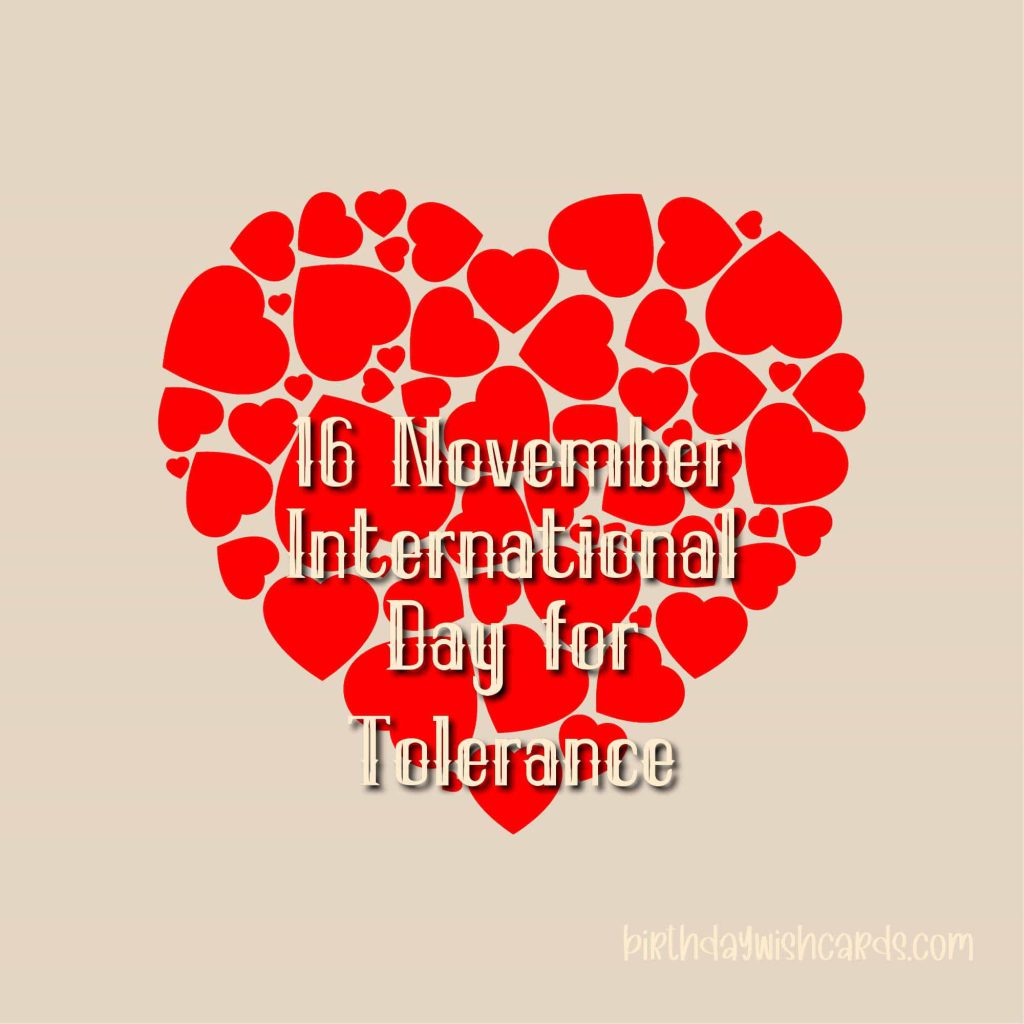
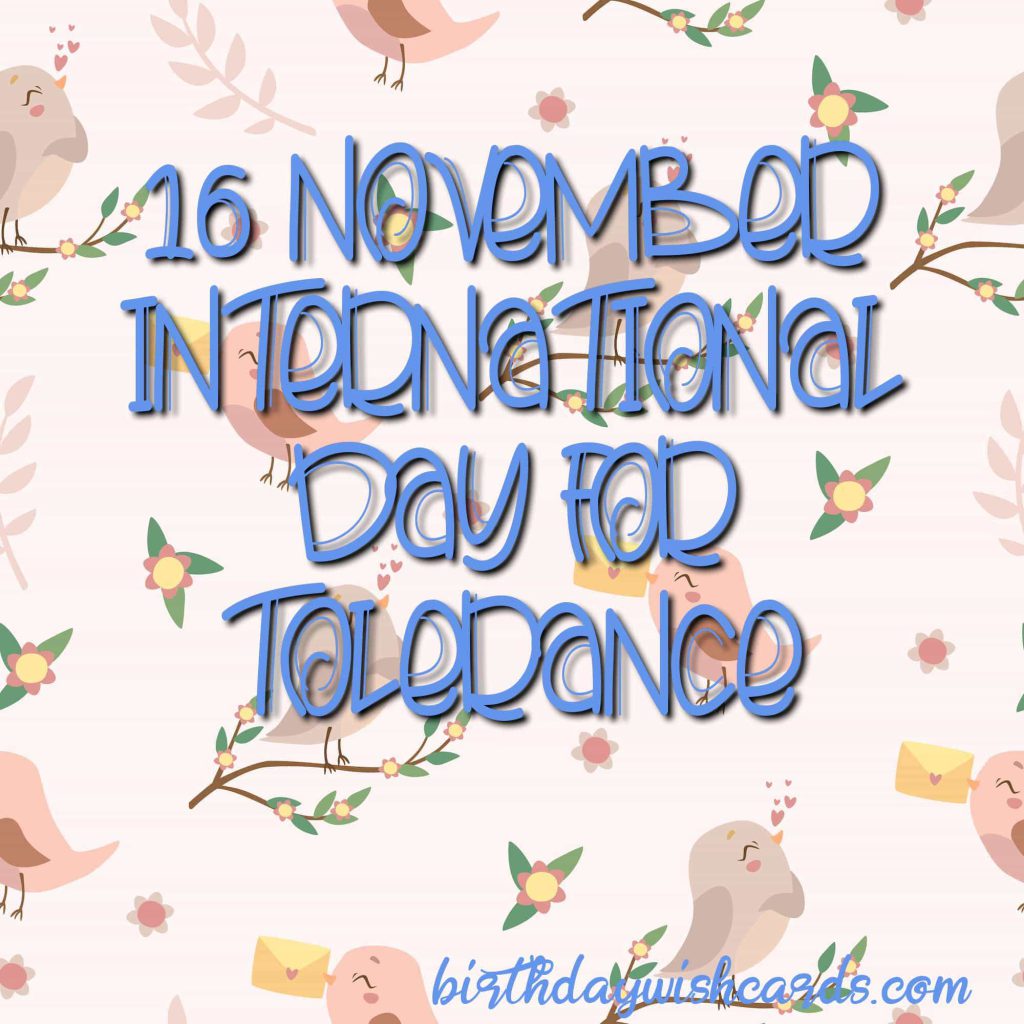
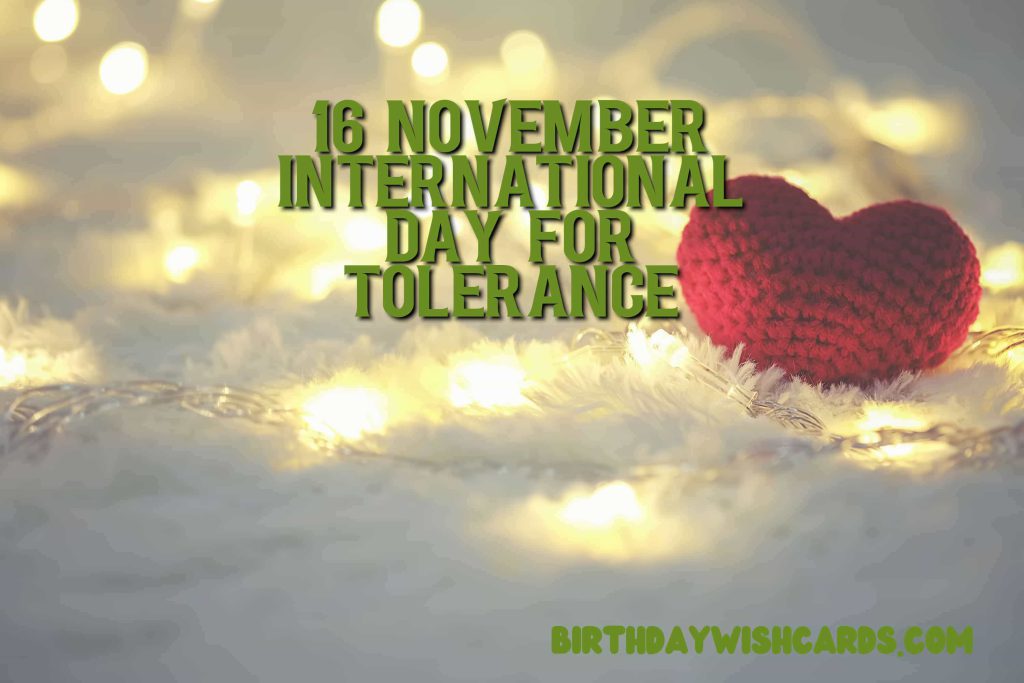
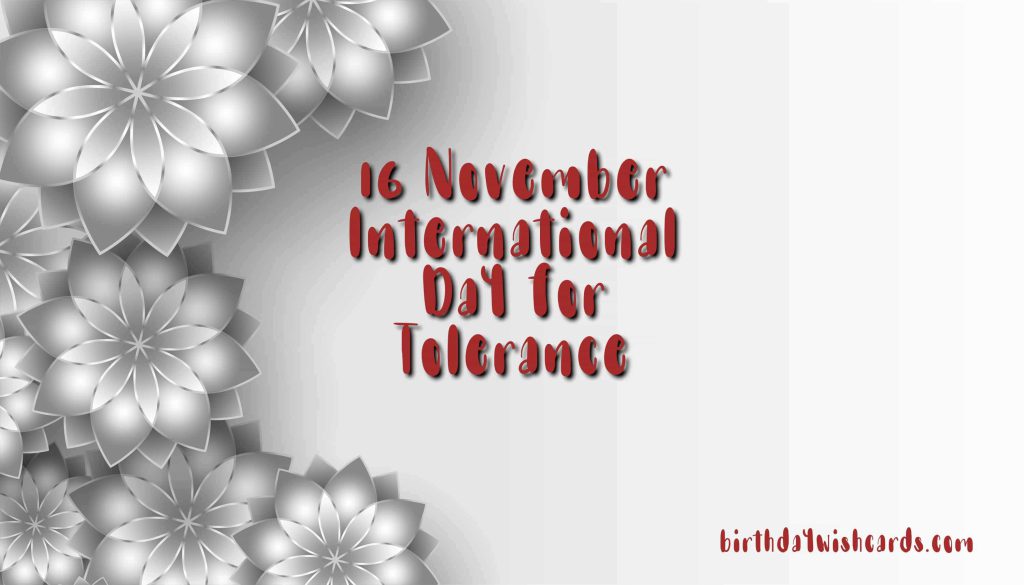
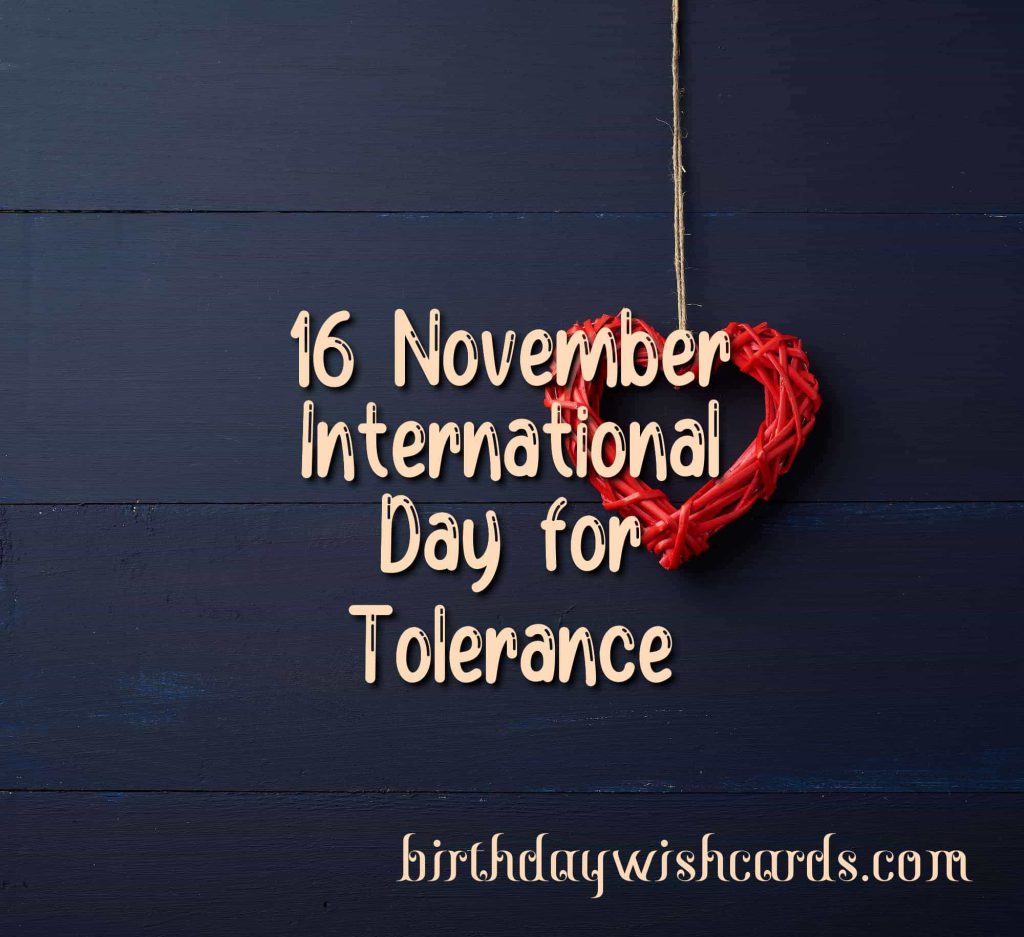
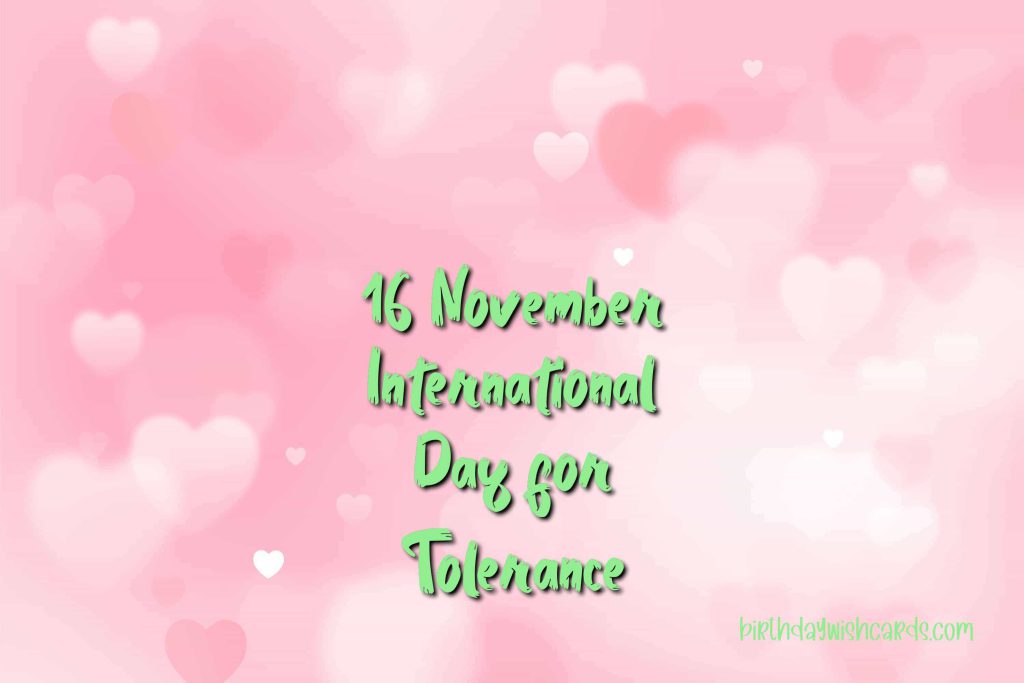



How You Can Promote Tolerance
- Educate Yourself and Others: Learn about different cultures, beliefs, and traditions to challenge stereotypes and prejudices.
- Engage in Dialogue: Participate in open conversations that encourage understanding and respect for diverse perspectives.
- Advocate for Equality: Support policies and initiatives that promote equal rights and opportunities for all.
- Practice Empathy: Put yourself in others’ shoes to better appreciate their experiences and challenges.
- Stand Against Discrimination: Speak out against intolerance, hate speech, and acts of violence.
The Global Importance of Tolerance
In today’s globalized society, tolerance is a cornerstone of sustainable peace, social justice, and human development. It enables communities to view diversity as a source of strength and innovation rather than division. By embracing tolerance, societies are better equipped to address challenges such as migration, cultural tensions, and political polarization.
International cooperation and solidarity flourish when countries uphold the principles of tolerance. This creates an environment where human rights are respected, and people can live free from fear and discrimination. The International Day of Tolerance serves as a timely reminder to renew our commitment to these values each year.
Further Reading and Resources
To learn more about the significance of tolerance and global initiatives to promote it, visit the official UNESCO Tolerance and Non-Violence Programme and the United Nations International Day for Tolerance pages.




